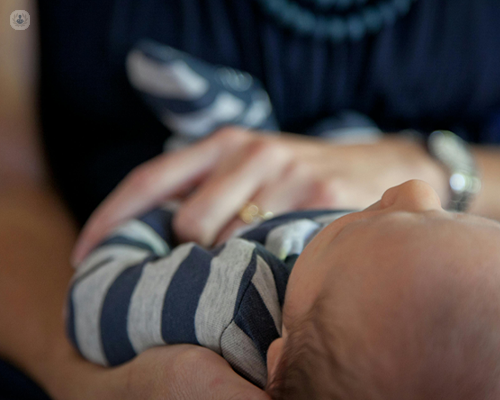Preparing your child for cleft palate surgery
Written in association with:Cleft palate surgery is a crucial procedure to improve your child’s ability to eat, speak and breathe, while also enhancing their overall quality of life. It can be a stressful experience for both the child and their parents, but proper preparation can help reduce anxiety and ensure the best possible outcome. Here’s a guide to help you prepare your child for cleft palate surgery.

Understanding cleft palate surgery
Cleft palate repair, also known as palatoplasty, is typically performed when a child is between six and 18 months old, depending on their health and development. The procedure involves closing the opening in the roof of the mouth, reconstructing muscles and improving the palate’s function for speech and feeding.
How do I prepare my child physically for cleft palate surgery?
- Follow pre-surgery instructions: Your healthcare team will provide specific guidelines, such as fasting before the surgery. Adhering to these instructions is critical to minimise risks during the procedure.
- Manage illnesses before surgery: If your child develops a cold or other illness before the surgery, inform your doctor immediately. The surgery may need to be rescheduled to ensure your child’s safety.
- Monitor growth and nutrition: Children with cleft palates may experience feeding difficulties. Ensure your child is receiving adequate nutrition to promote growth and healing after the surgery.
How do I prepare my child emotionally for cleft palate surgery?
- Explain the process in age-appropriate terms: Use simple language to explain why the surgery is necessary and reassure your child that the doctors and nurses are there to help them feel better.
- Use books or toys: Picture books or dolls designed for children with cleft palates can help familiarise your child with the experience.
- Involve your child in the preparation: Let them pick a favourite toy or blanket to bring to the hospital for comfort.
What should I pack for the hospital?
Pack essentials for your child’s stay, including:
- Comfortable clothing and pyjamas.
- A favourite toy, blanket, or dummy/soother.
- Feeding supplies, such as bottles or syringes, especially if your child has specific feeding needs.
- Any medications your child is currently taking.
Post-surgery recovery tips
After cleft palate surgery, your child will need extra care and attention to ensure a smooth recovery:
- Pain management: Follow your doctor’s recommendations for pain relief, such as prescribed medications.
- Feeding adjustments: Your child may need to use a special feeding spoon or syringe during recovery to avoid damaging the surgical site.
- Follow-up care: Regular follow-up visits with the surgeon and speech therapists are essential to monitor healing and address any speech or feeding challenges.
What emotional support is available for parents and caregivers?
Cleft palate surgery can be emotionally challenging for parents. Reach out to support groups or organisations specialising in cleft care to connect with other families who have gone through similar experiences.
Preparing for cleft palate surgery is a team effort between you, your child and their medical team. With proper planning and support, you can help ensure your child’s surgery and recovery are successful.


